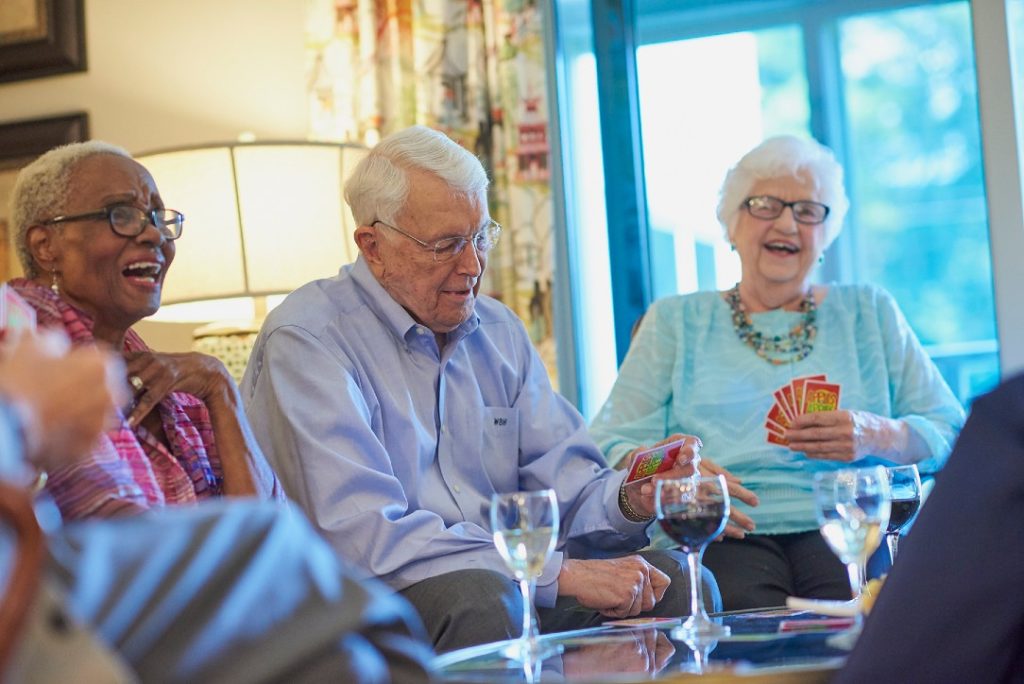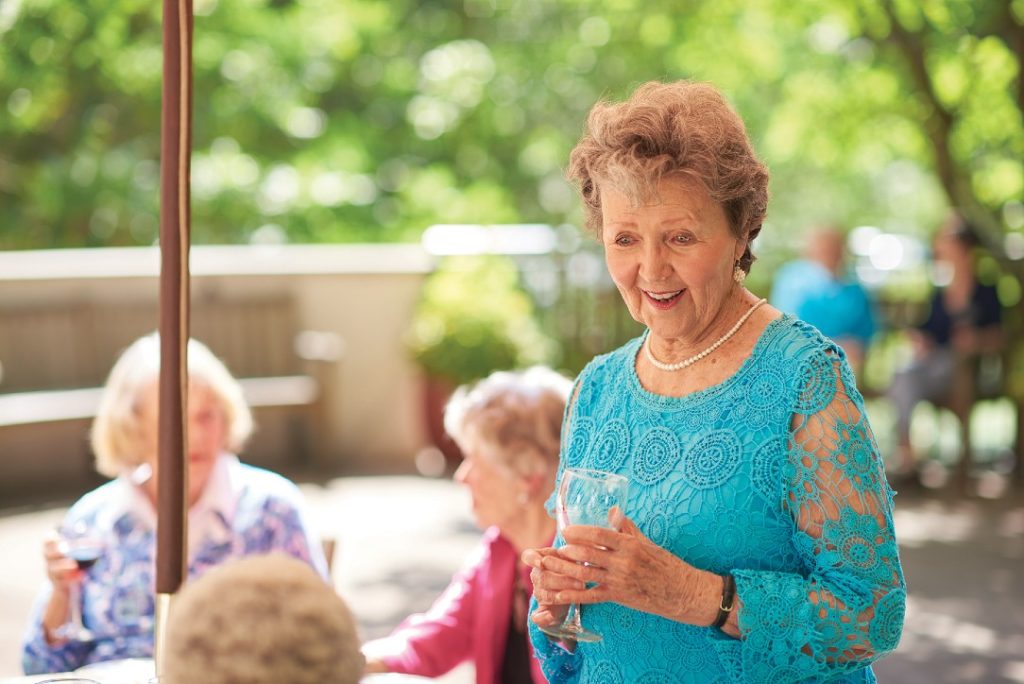People in their 70s and 80s often say that making friends isn’t as easy as it once was. But is loneliness an inevitable part of aging? It shouldn’t be. And it doesn’t have to be, though it does take some effort to find and cultivate new friendships as we grow older. The importance of companionship and socialization for seniors can hardly be overstated, and better physical and mental health are just some of the benefits of social interaction for the elderly. Companionship for seniors is as important as it is for anyone at any stage in life. Let’s take a closer look.
A natural consequence of growing older?
In one sense, it’s understandable that older people might have a harder time maintaining their social networks. Think of the different people and social situations you’d encounter during a typical work week at the office. People of different ages and skill sets, ranging from your boss to those you supervise to specialists in the various departments. It’s a landscape that requires language, social skills, empathy and mental effort to navigate. Once you’ve retired and that’s all over, it can leave an open, empty space in your life. Now factor in the loss of a spouse or lifelong partner, siblings and friends, and suddenly you’re feeling very alone. And as these interpersonal relationships dwindle, creating new ones seems distant and improbable. But that shouldn’t deter you from trying. The cost of senior loneliness is too high, and the rewards of senior companionship are too great.
The risks.
Senior loneliness and isolation are damaging to self-esteem, physical and emotional well-being, and even to longevity. Loneliness has been linked to a higher risk of cognitive decline, dementia and depression, as well as heart disease, diabetes, stroke and blood pressure disorders. It’s even been linked to higher mortality. The Stanford Center on Longevity found that socially isolated individuals face health risks comparable to those of smokers, and their mortality risk is twice that of obese individuals.

The remedy.
In the same way that losing social contact can be harmful to the health of seniors, maintaining and increasing it can help strengthen the immune system. It can aid recovery from illness, lower blood pressure and the risk of heart disease, and sharpen memory. Strong social connections may even improve our odds of living longer. It’s vitally important to remain open to new friendships as we age and to create new ways to seek them out. Try these thought starters.
- Continue to pursue your interests. Following your passions can lead to meeting like-minded people and building relationships naturally.
- Accept invitations. When people reach out to you, be open to the possibilities. Simply getting out more increases the odds of meeting people and potentially making new friends.
- Extend invitations. Invite guests for a meal together — at your place or at a favorite establishment. Taking a walk in the park or a trip to the library may lead to finding common ground and a budding friendship.
- Give social media a try. It may seem like new territory, but sites like Facebook let you find and reconnect with old friends, and also discover new ones who like and comment on items you post. You can also strike up new friendships with nieces, nephews and even grandchildren.
- Take a class. Your local high school or community college may offer inexpensive, continuing education classes in a range of topics that interest you. Group lessons in music, golf or photography can also lead to friendships that extend outside the classroom.
- Become more active in your church. Check the events at your place of worship. Many offer social gatherings designed specifically for seniors.
- Volunteer your time. Helping others is a great way to make friends. It puts you face-to- face with people and lets them see a giving, appealing side of you.
- Get a part-time job. Applying your work experience and life skills to a new assignment today will put you in the mix of people and reawaken your sense of purpose and accomplishment.
- Adopt a dog. Conversations happen spontaneously when you’re out walking with your best friend. Connecting with one dog lover may easily lead to meeting many more.
Keep your friendships alive.
Close relationships are good for the mind and body. But understand that nurturing friendships takes effort at any age. Once you’ve found certain groups or individuals who seem to have a place in your life, you’ll need to continue to stay in touch, communicate frequently and plan to do things together. You’ll be creating new memories and a foundation for a healthy, engaged future.
A great place to start is at Canterbury Court. This is a community where people share social connectedness and opportunities to continue to learn, develop new interests and hobbies, and share new experiences together. Discover how the Canterbury Court lifestyle can introduce you to a wealth of new friendships.
For more information, contact us through our website, or call 404-907-2737.

